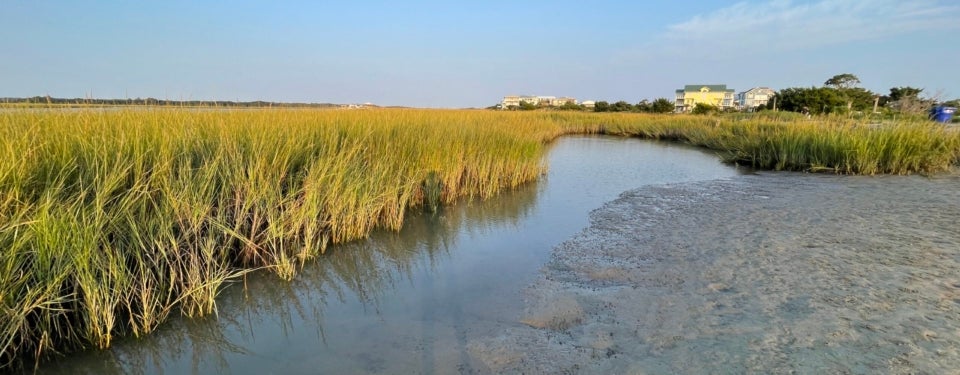NSF Coastlines and People
Supporting community collaboration in decision making and environmental justice in Eastern North Carolina!
What does it mean to be a resilient coastal community in the face of climate change?
Can coastal and inland communities develop shared goals to collaboratively address risks?
How do community-based science and basic research support each other to identify and overcome the hazards of today and tomorrow?

See the CoPe Project Team
Water impacts all of our lives in eastern North Carolina. From harmful algal blooms to flood waters, people throughout our region are constantly impacted by threats related to managing water quantity and quality. This Focused CoPe Hub is a collaboration between 7 academic institutions and 12 community stakeholder groups with an interest in understanding the issues and solutions from water-related risks in eastern North Carolina.If your community or group is interested in getting involved in the project, let us know at water@ecu.edu.
The goals of this project include four major program areas:
- System Mapping: collection of environmental, social and economic data to improve our understanding and models of the basic functioning of the Tar-Pamlico watershed and the environmental decision making strategies of the people who live within it
- Vulnerability Assessment: identification of areas where environmental, institutional, or economic disparities enhance risks from climate-driven hazards, such as droughts, hurricanes, and sea level rise
- Community Adaptation: evaluation of opportunities for locally appropriate cooperative adaptation and mitigation strategies that build community and regional resilience
- Environmental Justice: produce science needed by communities at risk through community-based research projects, embedded internships, and a regional forum to share local challenges and build collaborative solutions
Some of the key activities in this project will include the installation of hydrologic monitoring networks and development of models for the Tar-Pamlico watershed, expansion of citizen science projects for monitoring the health of the environment, identification of data and strategies that aid communities in effective decision making to enhance resilience, and increased capacity of communities to adapt to ever increasing risks of water-related climate threats.
CoPe in the News:
We are grateful to the many partners on this project, which include:
Academic Partners ( learn more about the project team)
- East Carolina University
- Manhattan College
- North Carolina Central University
- University of North Carolina at Greensboro
- Virginia Institute of Marine Science (College of William and Mary)
- Clemson University
- University of Virginia
North Carolina Community Partners
- City of Greenville
- Town of Princeville
- Town of Nags Head
- Hyde County
Other Partner Community and Government Organizations
- NC Conservation Network
- Sound Rivers
- North Carolina Coastal Federation
- Albemarle-Pamlico National Estuary Partnership
- Pitt County Coalition Against Racism
- Georgetown County Department of Public Services
- NC Department of Environmental Quality
- Waccamaw Regional Council of Governments
- North Carolina Agromedicine Institute
Watch this space for opportunities and project updates!
This material is based upon work supported by the National Science Foundation under Grant No.2052889. Any opinions, findings, and conclusions or recommendations expressed in this material are those of the author(s) and do not necessarily reflect the views of the National Science Foundation.
